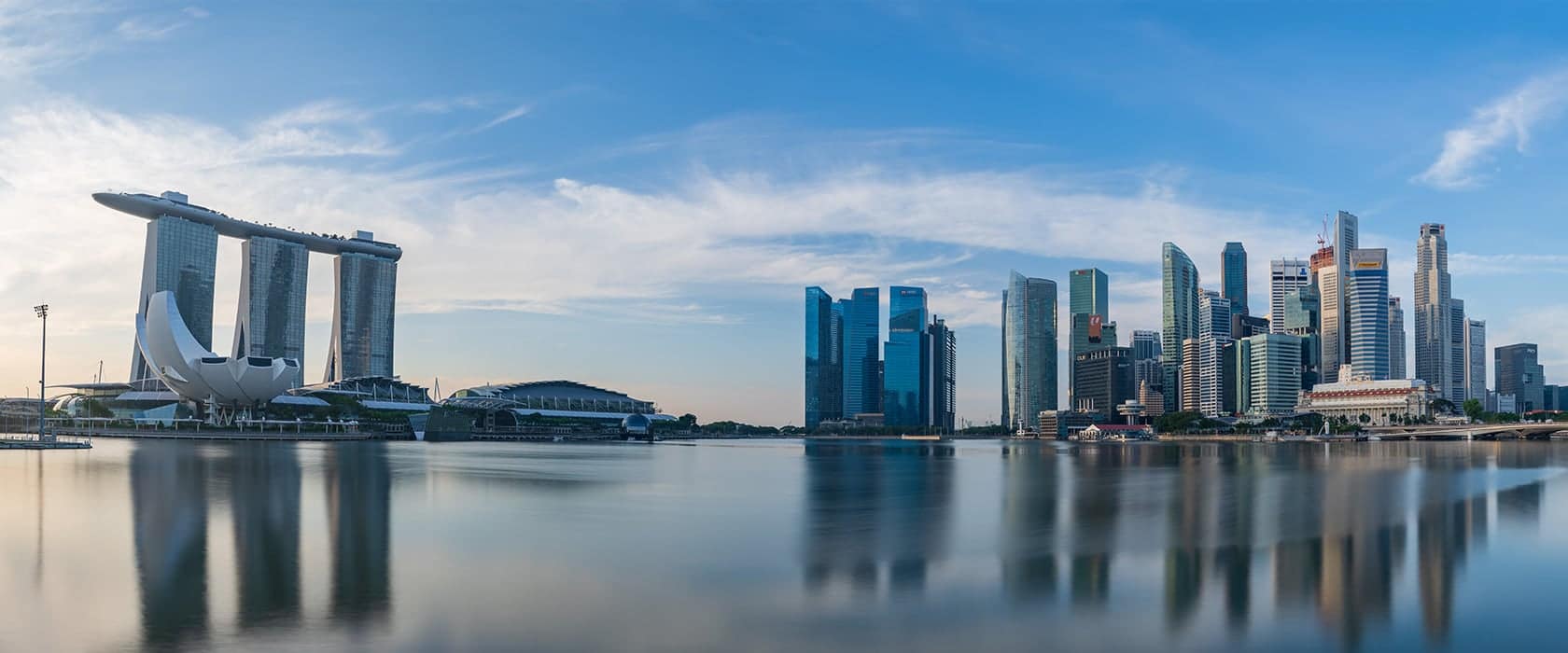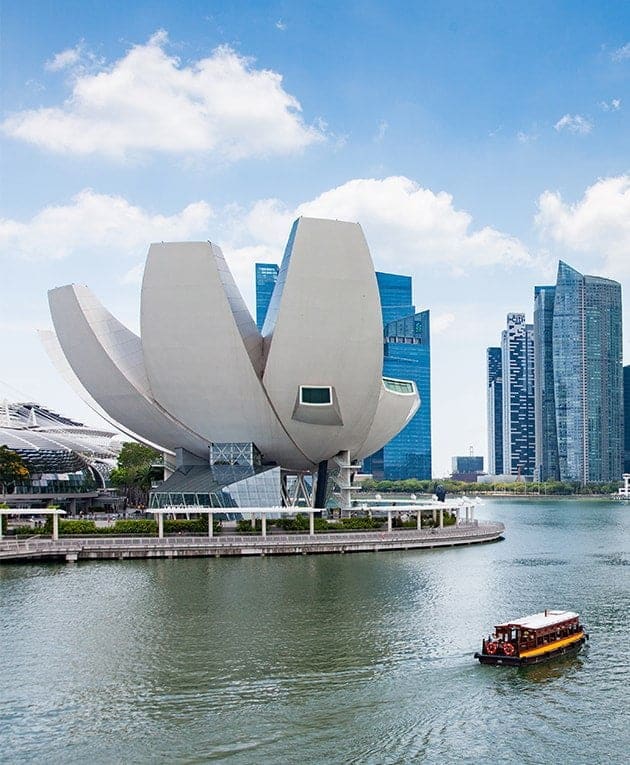-
Popular search terms
Get the Ultimate Guide
to Applying for an MBA

Download for free
Download you MBA Admissions Guide
Get the Ultimate Guide
to Applying for an MBA

Download for free
Download you MBA Admissions Guide

Singapore is one of just three city-states in the world. It is one of the most prosperous and educated nations in the world that consistently enjoys high average salaries and low unemployment rates. New arrivals in Singapore will be struck by the majesty of Central Singapore, a swarm of towering skyscrapers that stand at the edge of Marina Bay, which in turn is home to a 101-hectare national park. It is a suitably grand introduction to a place that has established itself as an international point of reference for higher education.
Singapore’s six universities are among the best in the world, while globally-recognized foreign schools, such as Yale, INSEAD, and ESSEC have all established campuses in the city-state. There is huge demand to study in Singapore given its reputation, and despite the high cost of studying and living, there can be little doubt that graduates leave an MBA in Singapore with some of the best career prospects anywhere in the world.

If you’re thinking about doing your MBA in Singapore, you will need a student visa, which is an essential document every student needs to spend more than 30 days in the country. The required documents for a Singaporean student visa include a university acceptance letter, a valid passport, recent passport-sized photos, a birth certificate, travel and health insurance, vaccination certificates, and proof of financial support. The cost of a Singaporean student visa is S$60 (US$44). The visa is valid for a maximum period of five years.
If you want to work in Singapore after graduating, this is possible through various types of work visa options available to all international students.
As one of the leading financial centers of the world, Singapore is home to around 700 local banks and boasts one of the best and most secure bank systems in the world. The main banks in Singapore are DBS Bank, OCBC Bank, United Overseas Bank, Maybank Singapore, Standard Chartered, Citibank Singapore, HSBC Bank, SBI Singapore, Bank of China, and RHB Bank. To open a bank account, you’ll need to provide documents such as proof of identity, proof of address, and a student visa. Some banks will also ask for a copy of your acceptance letter from your university to prove that you are a student.
Maintenance fees also vary, so it’s best to use the various available online tools to compare bank accounts for students in Singapore.
Singapore has a universal healthcare system, which is widely available and consistently ranked as one of the best healthcare systems in the world. International students in Singapore must take out private health insurance, which will cost around S$401 (US$291) per month. However, some universities in Singapore provide a medical insurance scheme, which is mandatory for all students.
Some universities in Singapore offer a variety of student accommodation options, such as residence halls, houses, residential colleges, and student residences.
More commonly, however, international students in Singapore choose to rent a single room in a shared apartment with other students. You can expect to spend anywhere between S$600 (US$430) and S$1,400 (US$1,000) per month in more upscale areas of the city. Homestays are also available, in which local Singaporean households open up their homes and invite international students to rent out a room. The cost of a homestay ranges from S$500 to $1,000 (US$360-730) per month.
Singapore offers the world’s best public transport solutions. Singapore’s commuters spend an average of 84 minutes on public transport every day. The best way to get around Singapore is via its Mass Rapid Transit (MRT) subway system, an underground network across the entire city-state. MRT also operates bus routes that can get you anywhere on the island.
Even though public transport fares increased in 2021, there are many ways you can save, including through the use of student discounts. For a university student, a monthly travel pass in Singapore costs around S$90 (for unlimited use of bus and train rides). This is equivalent to around US$60.
The Big Mac Index was invented by The Economist in 1986 as an informal way of measuring the purchasing power parity (PPP) between two currencies. The price of a Big Mac in Singapore is S$5.90 (equivalent to US$4.29, EUR€4.02, and JP¥549). For US$50, you can buy 11 Big Macs.
Singapore is one of the most expensive countries in the world. However, depending on your lifestyle, there are ways to live affordably in Singapore. MoneySmart estimates monthly expenses in three tiers in Singapore. On the low end – if you’re sharing a flat, cooking at home, and minimizing public transport and recreational expenses – you can expect to spend around S$1,200 (US$870) per month. On the mid-range – if you’re sharing a condo unit and spending more on food, transportation, and recreational activities – you should budget S$2,530 (US$1,800) per month. Finally, on the high-end – if you’re renting an entire apartment, eating at nice restaurants, and spending more money on transportation and leisure activities – your monthly expenses will be around S$10,360 (US$7,500).